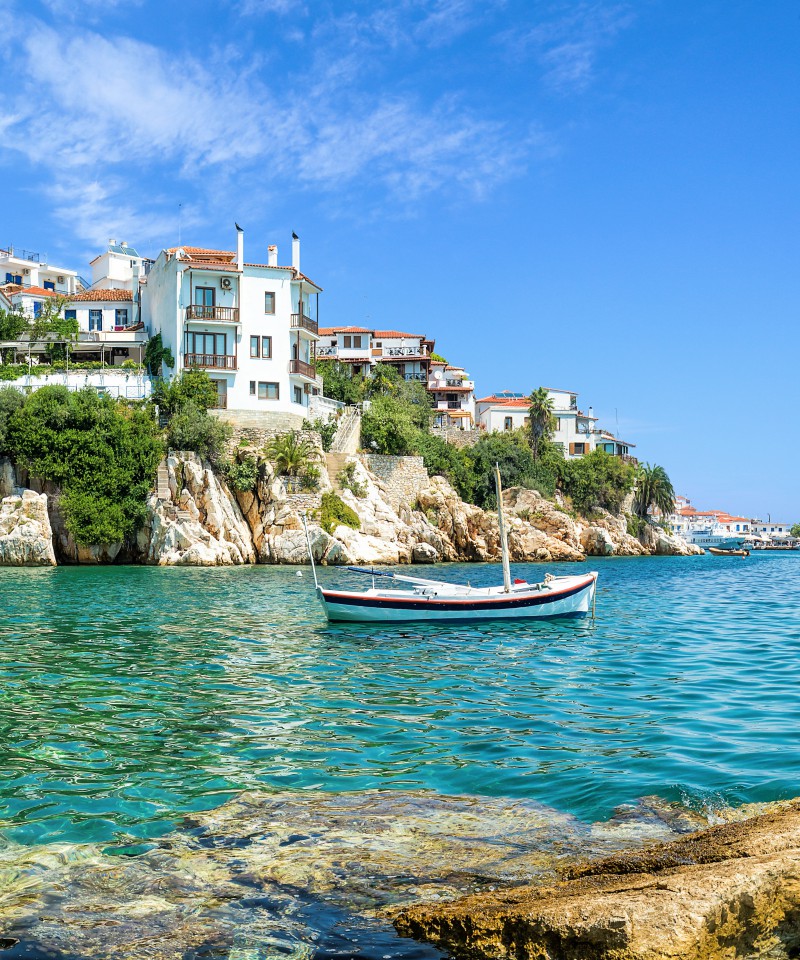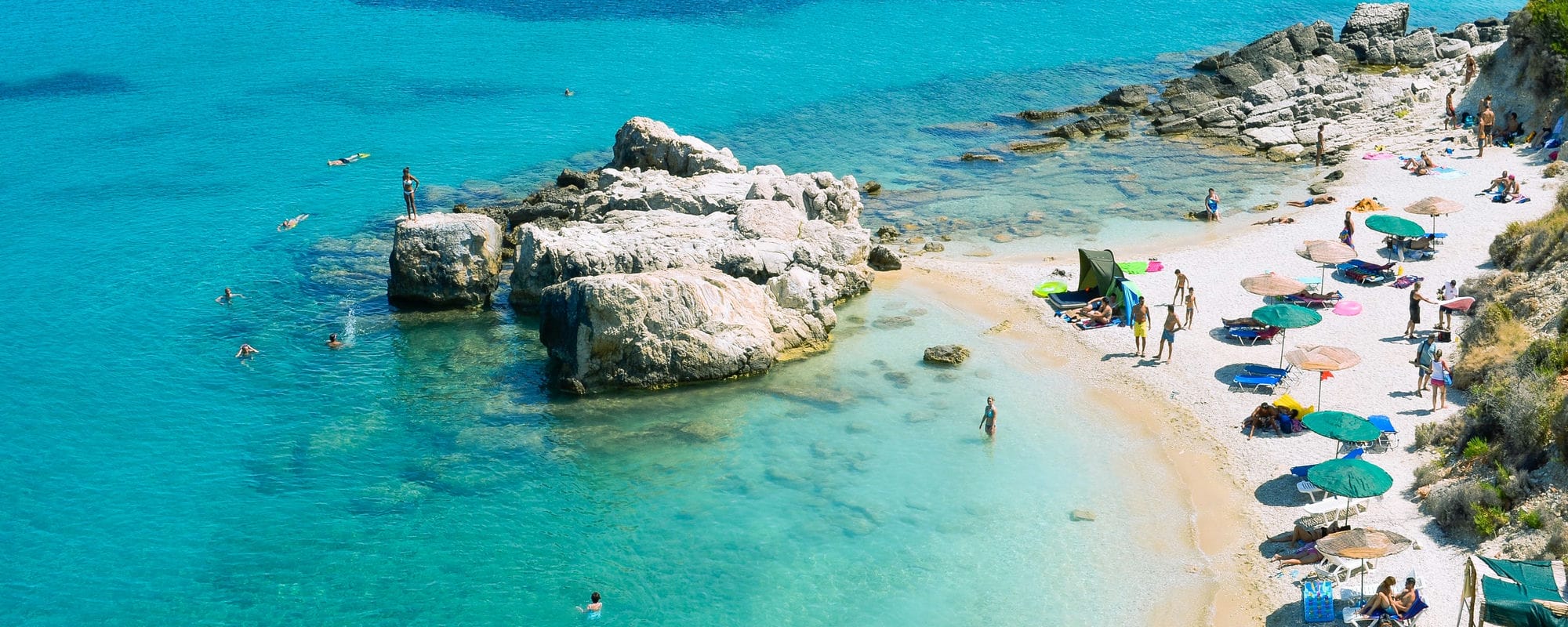
Worst Time to Visit Greece: Avoiding the Tourist Downtime
Key Takeaways
- The worst time to visit Greece depends on what you expect your vacation to be like.
- August in Greece is often overcrowded with tourists and locals, leading to diminished experiences.
- The summer heat rises to uncomfortable levels, affecting the enjoyment of outdoor activities.
- Winter conditions can limit access to tourist facilities and services, particularly on the islands.
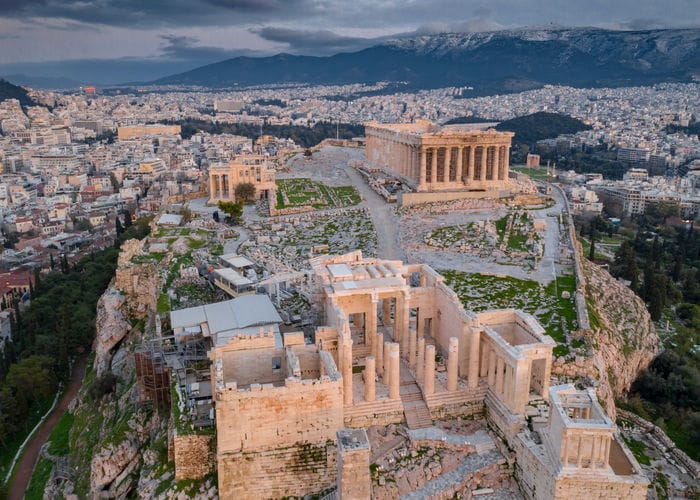
Greece beckons travelers with its stunning coastlines, ancient history, and mouthwatering cuisine, promising an idyllic getaway from everyday life.
However, every destination has its less favorable times for tourism, and Greece is no exception.
Identifying the worst time to visit depends not only on Greece weather patterns but also on one’s tolerance for large crowds and higher prices.
While Greece maintains its charm year-round, certain periods can hamper the full enjoyment of its offerings.
The peak of summer, specifically August, can be overwhelmingly crowded as tourists from around the globe and locals on holiday flock to popular destinations.
This surge not only strains resources but can also diminish the quality of the tourist experience with overpopulated beaches, busy streets, and fully booked accommodations.
Moreover, the scorching heat can cause extreme discomfort, with daytime temperatures soaring, paving the way for a less pleasant travel experience.
On the other hand, the winter season presents its own set of drawbacks, with colder, unpredictable weather and many tourist services closed, particularly on the islands.
The Winter Dilemma
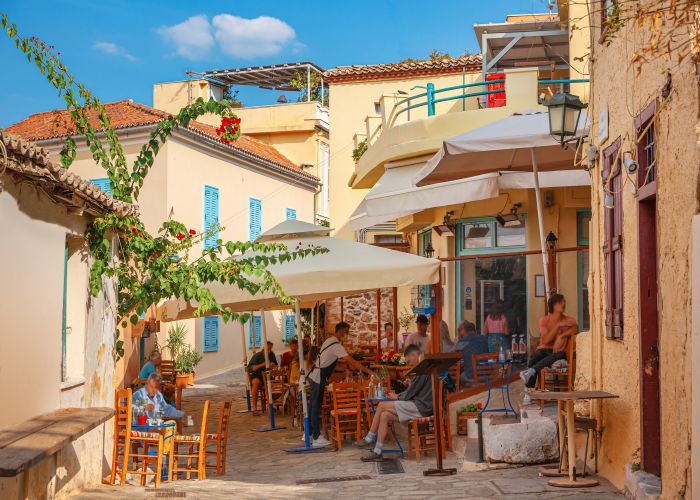
In the winter months, travelers to Greece can encounter cooler average temperatures there, limited access to certain areas, and restrictions on activities.
Overview of Winter Months in Greece
The winter in Greece spans from December to February. During this period, the country experiences a significant decrease in tourist traffic.
It's a time when many visitors may overlook Greece, but it's also when the country reveals a quieter, more authentic side.
- December: Tourists are fewer, and holiday festivities begin.
- January: The heart of winter with the coldest temperatures.
- February: The end of winter, leading up to Carnival season in Greece.

Weather Conditions Impact on Tourist Activities
Winter weather in Greece can range widely, with temperatures often falling to around 40°F (4°C) or lower, especially in the mainland and northern regions.
Snow is not uncommon in mountainous areas, which could impede outdoor tourist activities such as:
- Beach visits
- Island tours
- Hiking adventures
These activities are commonly hindered by the cool weather, shorter days, and less predictable weather patterns.
Limited Access to Islands and Attractions
Many Greek islands and some attractions either shut down or have reduced services during the winter months.
Ferries to the islands run less frequently, if at all, and some hotels, restaurants, and shops may close entirely until spring.
- Islands: Reduced ferry services and operation of amenities.
- Attractions: Seasonal closure or limited opening hours.
Travelers should plan accordingly and verify the availability of their intended destinations and activities during the winter season in Greece.
The Summer Crowds
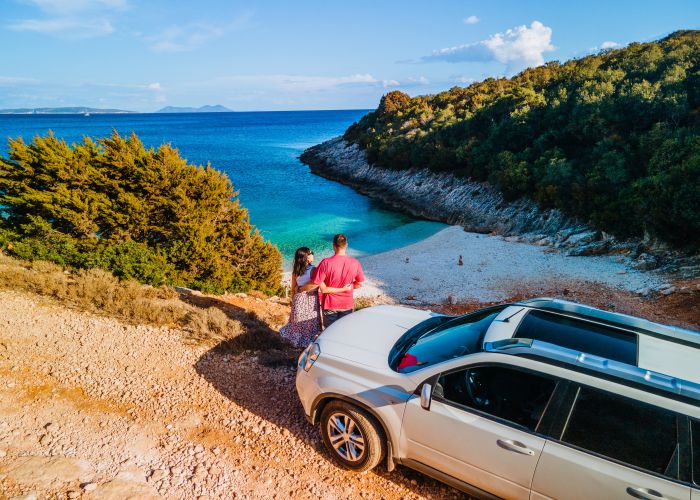
The peak summer months, particularly July and August, present certain challenges due to the significant rise in tourist numbers visiting Greece.
Challenges of Visiting During Peak Season
During peak season, travelers may face a range of challenges in Greece. July and August are known to drive the country into a tourism high, causing destinations to become densely packed.
The heat is often intense, with temperatures sometimes climbing beyond what some may find comfortable for outdoor activities and exploration.
The influx of Tourists Consequences
The influx of tourists in the summer leads to congested sites and attractions, longer waiting times, and a diminished sense of the tranquil Mediterranean experience.
Popular islands and sights may lose their usual relaxed ambiance, as crowds of visitors move from one landmark to another.
- Impacts:
- Local infrastructure is strained.
- Demand for public services, like transportation, increases.
- Quality of experience may decrease due to crowding.
Increased Prices and Overbooked Accommodations
Summer's high demand often drives up prices for accommodations, flights, and services.
It's common for hotels and rentals to book out months in advance, pushing visitors to either plan far ahead or settle for less-than-ideal lodging options.
- Accommodation issues:
- High occupancy rates.
- Elevated cost for rooms.
- Limited availability, possibly leading to far-off stays from desired locations.
- Weather Extremes and Discomfort
Visiting Greece during certain months can expose tourists to less-than-ideal weather conditions.
Particularly, the summer season is notable for its extreme temperatures that could affect comfort and the overall vacation experience.
Extreme Heat in Summer Months
July and August represent the peak of summer heat in Greece, with temperatures that can frequently climb to 35°C (95°F).
This climate is characteristic of Greece's Mediterranean weather pattern, which includes hot and dry summer seasons.
The extreme temperature during these months can lead to discomfort and potential health risks if adequate precautions are not taken.
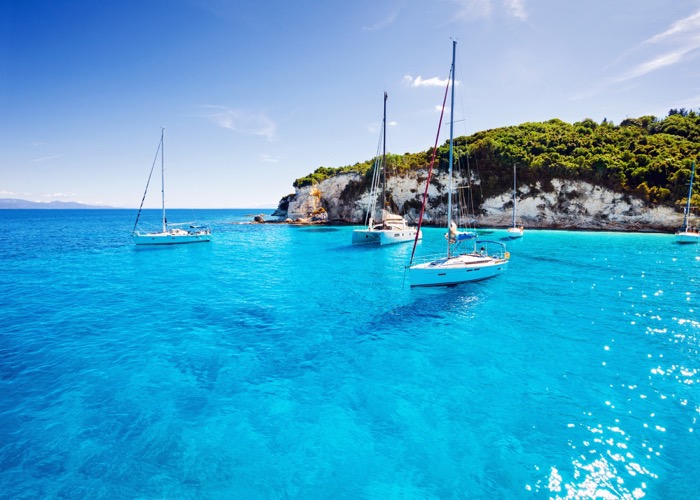
Discomfort of Outdoor Sightseeing in Sweltering Conditions
The act of sightseeing, which typically involves being outdoors for extended periods, can become particularly taxing under the intense Greek summer sun.
Visitors may find themselves facing dehydration or heat exhaustion if they do not stay hydrated or seek periodic shade, impacting the enjoyment of Greece's rich historical and cultural attractions.
Limited Options for Cooling Off
While Greece is renowned for its beautiful beaches, during the extreme heat of mid-summer, even coastal areas can become overwhelmingly hot.
Options for cooling off may be limited, as the sea temperature rises and the usual beach breeze may not provide sufficient relief from the heat.
Furthermore, these popular retreats are often crowded, making it challenging to find a spot for comfortable respite.
Tourist Experience Degradation

During peak tourist seasons, the influx of visitors in Greece leads to a notable decline in the quality of the tourist experience.
Issues such as pressure on local resources and a reduction in the authenticity of the cultural experience can detract from what is otherwise a rich travel destination.
The quality of Tourist Experience Suffers
The quality of the tourist experience in Greece can be compromised by extensive wait times at historic sites, congested attractions, and a decline in service due to the sheer volume of tourists.
Visitors may encounter:
- Long lines at popular landmarks such as the Acropolis.
- Overcrowded beaches, reduce the comfort and enjoyment of leisure time.
- Hotels and accommodations operate at full capacity, which can impact the level of service.
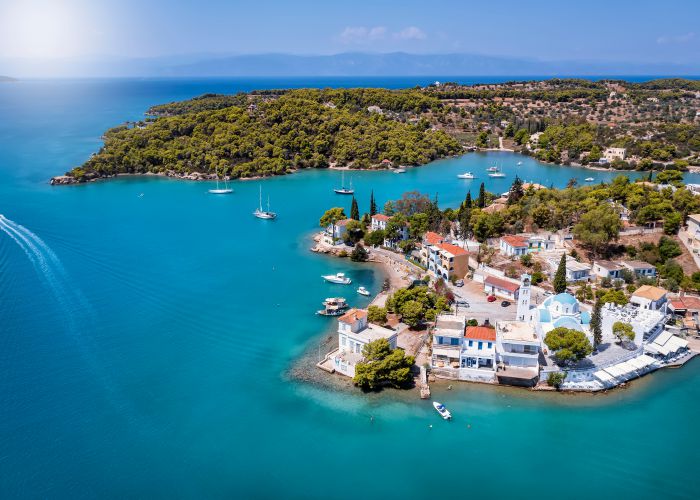
The strain on Resources and Infrastructure
Greece's resources and infrastructure face significant strain during periods of peak visitation. This results in:
- Overburdened public transport systems, leading to delays and discomfort.
- Increased demand for water, electricity, and waste services, which can lead to shortages and sanitation issues in extreme cases.
- Greater environmental impact due to the increased human activity.
Authenticity and Loss of Local Charm
The authentic Greek experience is often diluted when popular tourist destinations become tailored to accommodate mass tourism.
Consequently:
- Local establishments may prioritize tourist preferences over traditional practices, impacting cuisine and shopping experiences.
- Some residents may move away from tourist hotspots to avoid the crowds, which diminishes the local character and charm.
- Tourists might find it challenging to have genuine interactions with locals and to experience the country as the Greeks do.
Regional Variations and Exceptions

The experience of visiting Greece can vary greatly depending on the region and time of year. Specific areas may have distinct best and worst times for tourists due to climate, events, or local customs.
Different Regions' Best and Worst Times
In Athens, the height of summer, particularly July and August, can be overwhelmingly hot with temperatures soaring above 35°C (95°F), often leading to less-than-ideal conditions for exploring historical sites.
On the flip side, locations in Northern Greece experience colder winters, which can be challenging for visitors looking for outdoor activities.
For Greek Islands, the off-peak season might render many tourist services and accommodations closed, with some islands becoming quite desolate.
In contrast, crests of tourism in mid-summer can lead to overcrowded beaches, villages, and tourist attractions, with Santorini and Mykonos being prime examples of popular islands that can be overtouristed during this period.
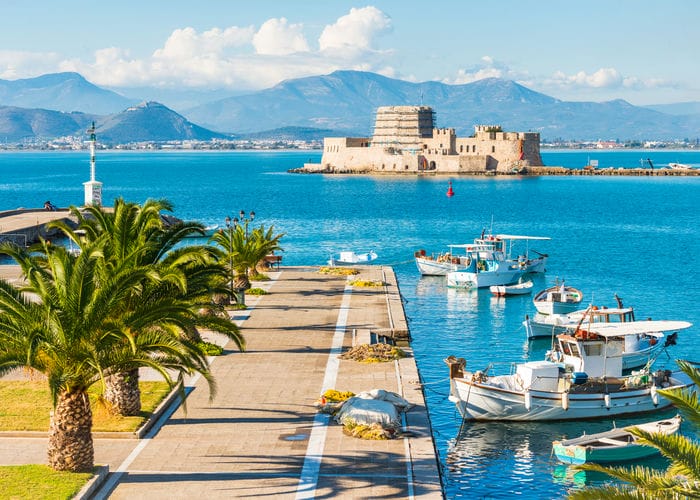
Paradox of Athens in August
August in the capital city of Athens, which is arguably a year-round destination, presents a contradiction.
While one might assume this to be a peak tourist period, the city quiets down significantly as many locals take their vacations to the islands and countryside.
Visitors might find this a relief from otherwise congested attractions, but they should be prepared for high temperatures and the potential closure of smaller businesses.
Islands Versus Mainland Considerations
The temperate climate of coastal mainland areas is more balanced, avoiding the extremes of the islands or the mountainous regions.
Visitors should note that:
- Mainland Greece may offer more consistent tourism services year-round compared to the islands.
- In winter, some islands can be difficult to reach due to fewer ferry services.
- Seasonal variations might also affect cultural experiences such as festivals or local markets which are more abundant during specific months.
Understanding these regional nuances is imperative for travelers planning their visit to Greece, ensuring they optimize their experience based on location and timing.
Alternative Times to Visit
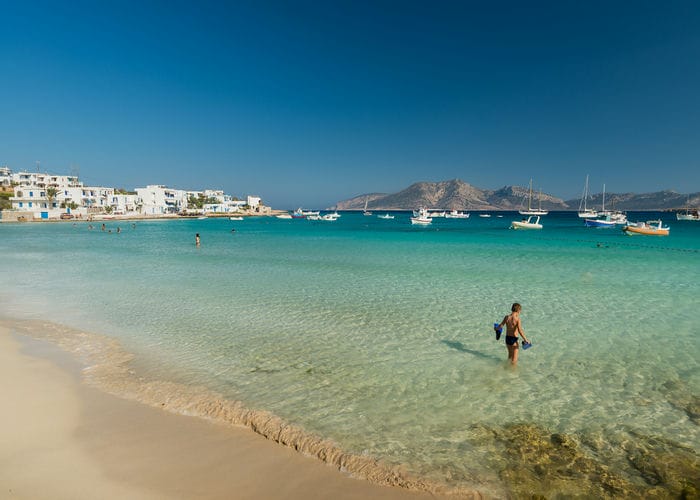
While the summer months often draw the largest crowds and high temperatures can deter some travelers, the alternative times to visit Greece offer a range of benefits, including milder weather and unique cultural experiences.
Best Times to Visit Greece
Spring (April to Early June) and Autumn (September to October) are arguably the best times to visit Greece. During these shoulder seasons, tourists can enjoy:
- Temperatures: Warm, sunny weather averaging around 24°C (75°F).
- Crowds: Fewer visitors compared to the peak summer months.
April marks the beginning of good weather, and by May, the Mediterranean climate becomes ideal for exploring the outdoors and experiencing the warm hospitality of the Greeks.
Benefits of Off-Peak Travel
Traveling to Greece in the off-peak season brings several advantages:
- Cost: Lower prices on accommodations and flights.
- Experience: More authentic interactions with locals and an opportunity to see Greece without the large tourist influence.
Visiting during these months supports a sustainable tourism model, spreading the economic benefits throughout the year.
Recommendations for Activities and Festivals
April through June and September through October provide an excellent backdrop for engaging in a variety of activities and attending local festivals:
- Cultural Festivals: Easter celebrations in April are held in a vibrant and lively atmosphere, reflecting Greece's rich traditions.
- Outdoor Activities: Ideal for hiking, sightseeing, and visiting archaeological sites and ancient ruins with comfortable temperatures.
Here are recommended experiences aligned with the off-peak seasons:
| Month | Festival/Activity | Description |
|---|---|---|
| April | Easter Celebrations | Witness the midnight service and fireworks. |
| May | Flower Festivals | Enjoy vibrant displays in towns and villages. |
| September | Wine Harvest | Participate in grape harvesting and wine tastings. |
| October | Olive Harvest | Experience the start of the olive-picking season. |
These timeframes not only offer agreeable and warm weather but also a chance to take part in Greece's living traditions and bountiful harvests.
Strategies for a Memorable and Affordable Trip
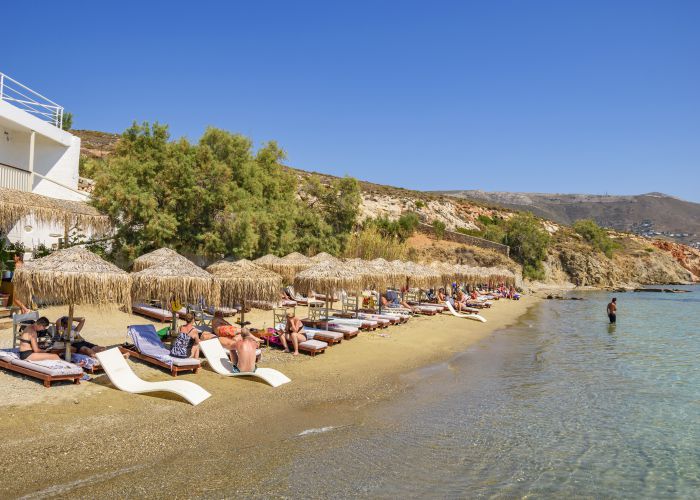
To ensure a trip to Greece is both memorable and affordable, travelers should consider strategic planning around travel costs and timings.
By leveraging shoulder and off-peak seasons and understanding how to navigate the high tourist density, one can enjoy the richness of Greece without strain on their budget.
Navigating Travel Costs and Options
To manage travel costs effectively, travelers are encouraged to investigate various transportation options well in advance.
Booking flights and accommodations early can lead to significant savings, especially if one is flexible with their travel dates.
Comparing prices across multiple platforms or considering alternative airports can also uncover more budget-friendly choices.
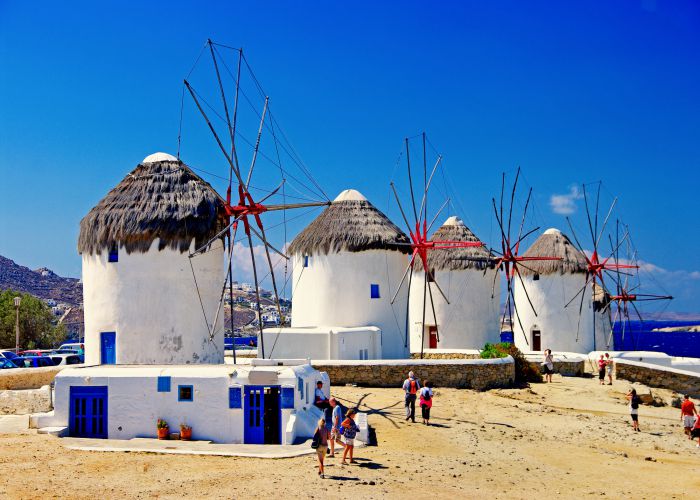
Embracing the Shoulder and Off-Peak Seasons
Traveling during the shoulder seasons—April to early June and September to October—offers a harmonious balance of pleasant weather and affordable prices.
Costs for hotels and activities tend to be lower, and you can avoid crowds.
The off-peak benefits also include a more original experience of authentic Greek culture, as travelers will have the opportunity to interact more with local people and their daily lives.
Maximizing the Experience with Fewer Tourists
A lesser-known secret is that visiting during times with fewer tourists can dramatically enhance the quality of one's trip.
Attractions are less crowded, offering a more relaxed atmosphere and often more personal interactions with guides and locals.
Those planning their trip should aim to sightsee early in the morning or later in the day to avoid the midday rush and to immerse themselves fully in the natural and historical sites Greece offers.
Final Thoughts

When considering a trip to Greece, travelers should prioritize times outside the peak summer months of July and August. These periods are marked by:
- High temperatures often exceeding 35°C (95°F), which can deter from the comfort and enjoyment of outdoor activities.
- Crowded tourist spots leading to long lines and overpopulated attractions, negatively impacting the overall experience.
- Elevated prices for accommodations, flights, and local services due to increased demand.
To make informed decisions and engage in responsible travel, opting for the shoulder seasons of spring (April-May) and the shoulder season of autumn is advisable. These seasons offer:
- More moderate weather,
- Fewer tourists, and
- Better value for money.
Planning a trip during these recommended times benefits visitors with a more authentic experience of Greece's rich culture and stunning landscapes.
By doing so, travelers not only enhance their personal experience but also contribute to the sustainable tourism efforts of the country, reducing strain on local resources.
In summary, responsible planning ensures a visit to Greece is both enjoyable and respectful of the destination’s intrinsic value.






